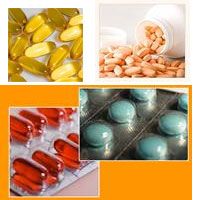 | « Back to article | Print this article |
 Some key cancer drugs, antibiotics and medicines to treat cardiovascular diseases and tuberculosis are set to become cheaper by up to 50 per cent within the next 45 days.
Some key cancer drugs, antibiotics and medicines to treat cardiovascular diseases and tuberculosis are set to become cheaper by up to 50 per cent within the next 45 days.
The National Pharmaceutical Pricing Authority will soon notify prices of as many as 150 packs of essential medicines in line with the new pharma pricing policy, according to official sources.
Once the new price notification is in place, the maximum retail prices of many cancer drugs will fall 10-30 per cent on an average -- some as much as 50 per cent.
Similarly, prices of cardiovascular drugs will come down 20-30 per cent, while those specifically used as anti-hypertension medicines will get 15-30 per cent cheaper.
According to an official, prices of antibiotics will see a major change.
“The range of price cut in antibiotics will be 15-50 per cent, depending on strength,” he said.
For instance, the MRP of paracetamol, a key analgesic used for pain relief, would drop 25-55 per cent.
While paracetamol injection will get 25 per cent cheaper, prices of syrups and tablets will fall 35 and 55 per cent, respectively.
These prices are calculated on the basis of the Drug Price Control Order, 2013, recently notified by the government in line with the new pharma pricing policy cleared by the government last year.
DPCO mandates NPPA to cap prices of 348 essential medicines based on an arithmetic average of all drugs in a particular segment that have market share of more than one per cent.
However, the drugs currently priced below the cap would not be allowed to hike prices to match the cap.
This is significant as the new formula does not allow prices to go up from the current level.
This will be the first set of price notification by the regulator. “In the first phase, we are notifying only those categories and drugs for which